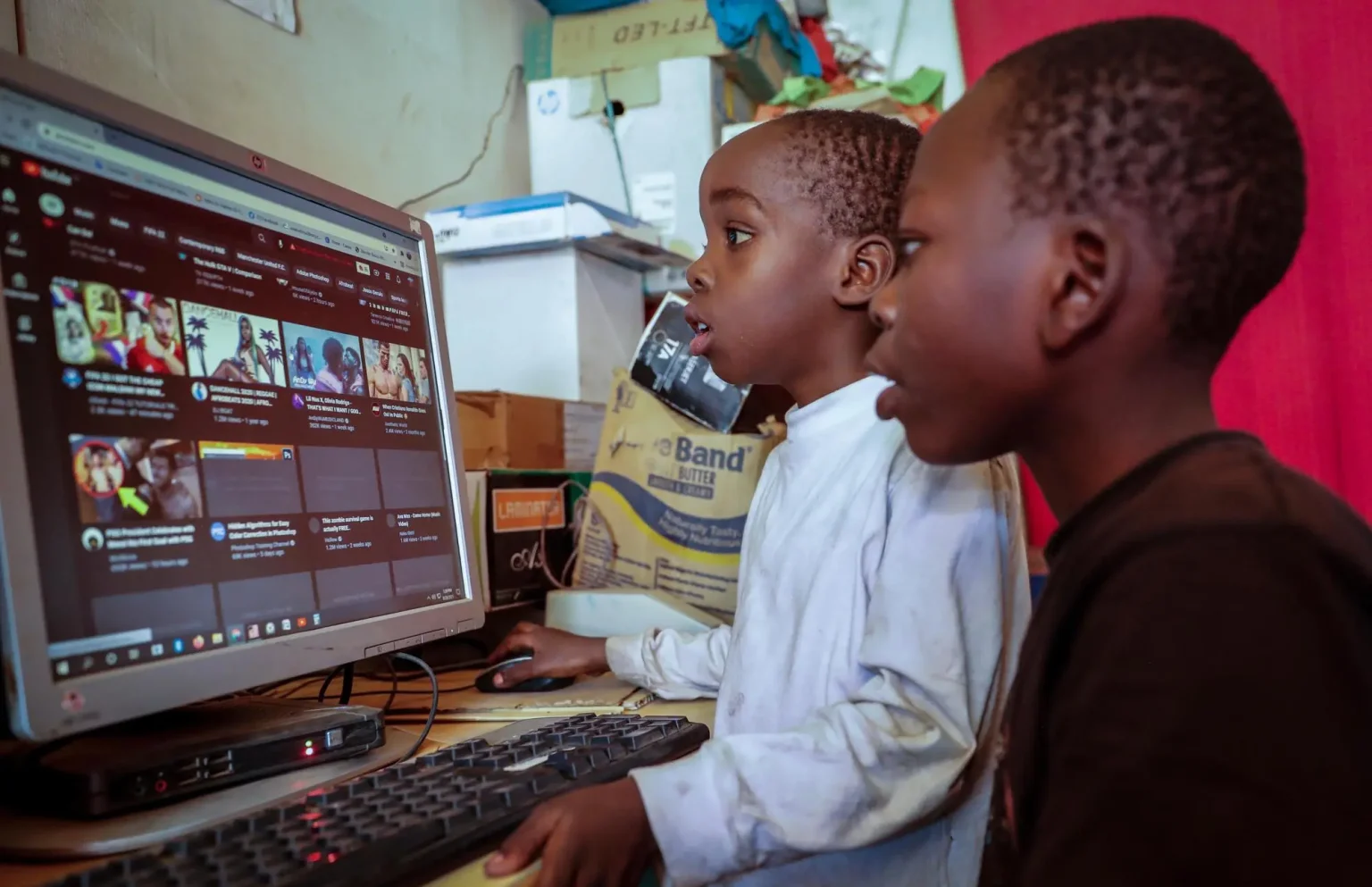- The continent internet economy can reach $180 billion by 2025, accounting for 5.2 per cent of Africa’s GDP
- Africa’s access to the internet stands at 40 per cent, according to Google
- With more than 1.3 billion people, Africa lags behind the rest of the world in internet connectivity as it has only 22 per cent in connectivity
Africa’s digital economy is expanding quite fast. The continent internet economy can reach $180 billion by 2025, accounting for 5.2 per cent of Africa’s GDP, according to information from IFC.
Doubling down on the latter, by 2050, the projected potential contribution could reach $712 billion, 8.5 per cent of the continent’s GDP (IFC). Internet in Africa is the new gold as it facilitates the growth of technology-driven sectors, transforming communities’ economies.
Internet in Africa is transforming economies of fast-growing countries that also record a large share of internet users in the region, such as Kenya, Nigeria, Egypt, Tanzania, South Africa, Algeria, Morocco, and Tunisia.
READ: East Africa’s need for a unified digital economy
Connectivity in Africa is still a challenge that governments and local thinks are working hard to address.
With more than 1.3 billion people, Africa lags behind the rest of the world in internet connectivity as it has only 22 per cent in connectivity.
However, one of the world’s tech giants, Google, pointed out that 40 per cent of the African population has internet access, and over the next decade, internet access will grow by 11 per cent.
The digital economy presents a promising future for Africa as it tries to bridge the digital divide and arm its citizens with tech know-how.
READ: Time for African creatives as digital economy picks
Africa connectivity
Internet in Africa was a foreign concept almost three decades ago. However, dynamic shifts occur annually within the region as more actors like Twitter and Google invest billions in transforming Africa’s internet economy.
Google is changing Africa’s digital economy. Earlier this month, the company launched a product development centre in Kenya’s capital city Nairobi. Kenya has a healthy growing internet connectivity ecosystem across the region.
Google’s development centre in Kenya is the first in Africa and stands to transform products and services for the African market and the world.
Africa’s digital economy stands to draw billions as Google plans to invest $1 billion over the next five years. Ghana hosts Google’s AI and research centre, the first centre established by the tech giant in Africa.
Africa’s digital economy stands to transform exponentially as tech giants such as Google inspire other actors such as Twitter—whose founder eyes expanding blockchain in Africa.
Africa’s digital economy has an exciting history. Ghana, one of Africa’s fast-growing economies, was among the first African nation to liberalize the telecommunications market in 1990, and two years later internet became accessible (DW).
“Today, nearly 70 per cent of Ghana’s 30 million people are mobile subscribers, ” according to the National Communications Authority (NCA)”.
Further, Africa has found a tailored niche in the digital economy. Mobile network operators have seeded their services that offer seamless fintech services to vast users across urban and rural communities—Kenya and Tanzania good examples.
While nations like Tanzania, Kenya, Nigeria and Ghana maximize their digital economy potential, South Sudan is faced with stagnation as the internet penetration rate stood at only 8 per cent –the lowest in Africa (DW).
READ: Africa’s Digital Economy Projected To Grow To $180 Billion By 2025
Higher data costs for ordinary citizens and low digital literacy are argued to be factors standing between Africa and the digital economy, excellency.
On the bright side, Google finds the region’s future exciting as the tech giant eyes to expanding its operations in the continent.
“We have 300 million people on the internet in the region today. We also know that in the course of the rest of this decade, we are going to have another half a billion people who will experience the internet for the very first time, which is why it is incredibly important that we build products and experiences that are helpful to these people that are going to be experiencing the internet just in Africa” argued Google in Africa managing director, Nitin Gajria.
However, Business Daily Africa pointed out that at least 71 per cent of professional investors expect the affordability of mobile phones in Africa to improve over the next three years.
The digital economy in Africa is dependent on other sectors, particularly urbanization and infrastructure investment.
The latter drives increased access to more affordable higher-speed internet. Egypt, Morocco and Sudan are notable African nations with the lowest internet prices.
According to Google, by 2019, digital connectivity stood at 40 per cent. Also, 10 per cent of digital connectivity leads to a 2.5 per cent increase in GDP per capita.
The Internet economy in Africa demands more boots on the ground, and expanding the tech ecosystem is of paramount importance for the region to maximize its digital economy.
According to Google, by 2019, Africa had 700,00 people with tech talent as developers. Further, the tech giant argued that fintech and e-commerce are two essential sub-sectors in the digital economy pushing digital transformation in Africa.
Fintech is Africa’s digital economy poster child. In 2021 fintech in Africa will become the world’s second-fastest-growing payments and banking market.
By September 2021, Africa was the largest adopter of mobile money transfer systems holding nearly 70 per cent of global mobile money transactions and two-thirds of the transaction volume by value (Brookings).
Fintech startups are top-funded pools in Africa’s digital economy sub-sector ecosystem. In 2021 fintech received more funding than any other category of startups—fintech raised close to $5 billion.
The Internet economy in Africa has the right potential to transform the continent’s economy on a broader scale. Global economies adopt various shifts driving digital economy potential for prosperity, and Africa ought to capitalize on it as soon as possible.
